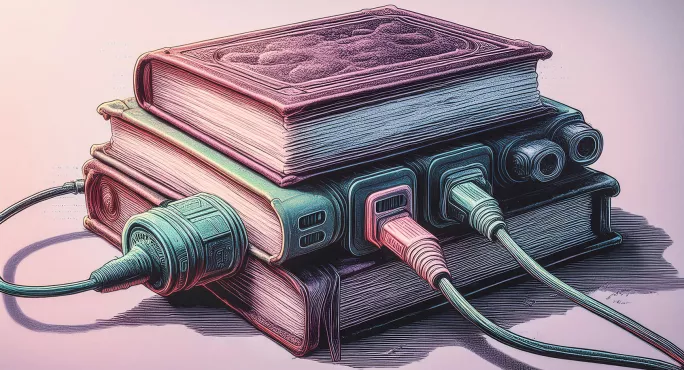This year represents a once-in-a-generation opportunity to be bold when it comes to education policy in the UK.
The evolving landscape pushes us to reconsider the deep aims and outcomes of education.
This moment beckons the opportunity to enact big change when it comes to curriculum and assessment. It is essential that digital transformation is central to this change.
Technology plays an essential role in students’ lives both inside and outside of the classroom. We have seen how online learning successfully served students and educators during the pandemic, and we now have the chance to embrace digital possibilities in preparation for an unknown future.
Technology and education
We need to move beyond the confrontational quarrel about whether technology is good or bad for young students, to tackle the threats and embrace the opportunities.
A shift towards digital learning and assessments is not just for the sake of meeting students where they are most comfortable - in front of screens and on their devices. Rather, this shift is increasingly about instilling future-ready skills and ethical practices to help them become responsible digital citizens.
History shows us that when education has been able to keep up with technology, economic inequality has decreased, and vice versa. Embedding the relevant skills and competencies in education serves both equality and equity.
Through education, we can encourage students and educators alike to embrace digital innovation and to use technology to become active, global citizens who foster cross-cultural collaboration. The UK has an opportunity to do this as it embraces educational reforms.
One must assume that a review of the national curriculum will represent significant reform of teaching, learning and assessment for most schools.
The process for deciding these tectonic changes in education needs to be observed through the prism of the accelerating digital revolution and extraordinary advances in artificial intelligence around the world.
As such, the scale of what is possible in terms of educational reform is hard to fathom. Schools, classrooms and the very act of learning are up for consideration.
Reforms such as digital assessment, online learning programmes and guidelines for the use of AI in the classroom are already underway within many academic institutions, as well as among educational leaders throughout the world.
The digital domain
This is why we have been looking at how to consider the adoption of digital assessments in the future while ensuring that we maintain the integrity of academic results and standards.
Meanwhile, pilot programmes such as the International Baccalaureate’s Online Diploma increase student access to high-quality, international education regardless of geography or socio-economic barriers.
In this way, technology can be leveraged to increase equitable access to education for all students beyond the borders of wealthy urban centres.
Finally, it is essential to embrace artificial intelligence in a way that teaches students to use these tools ethically and effectively.
Exploring the ways in which technology and digitalisation in the classroom have and will impact learning and benefit learners should be the priority of educational and governmental leaders today, to ensure that students are prepared to become the leaders of tomorrow.
To understand what it means to live a flourishing life in our era, we need to combine the wisdoms of sciences and humanities.
Seizing the moment
Of course, technology evolves endlessly. And as such, constant review will be the only way to maintain digital relevancy in a rapidly changing world.
Educational leaders and policymakers must be bold. If the curriculum is to be reconsidered, then surely now is the time.
It would be a lost opportunity if educational leaders didn’t do everything in their power to make sure that schools, assessment and curricular advancement are part of the necessary transformations of this incredible moment, for the good of our students.
Olli-Pekka Heinonen is the director-general of the International Baccalaureate
For the latest education news and analysis delivered directly to your inbox every weekday morning, sign up to the Tes Daily newsletter




